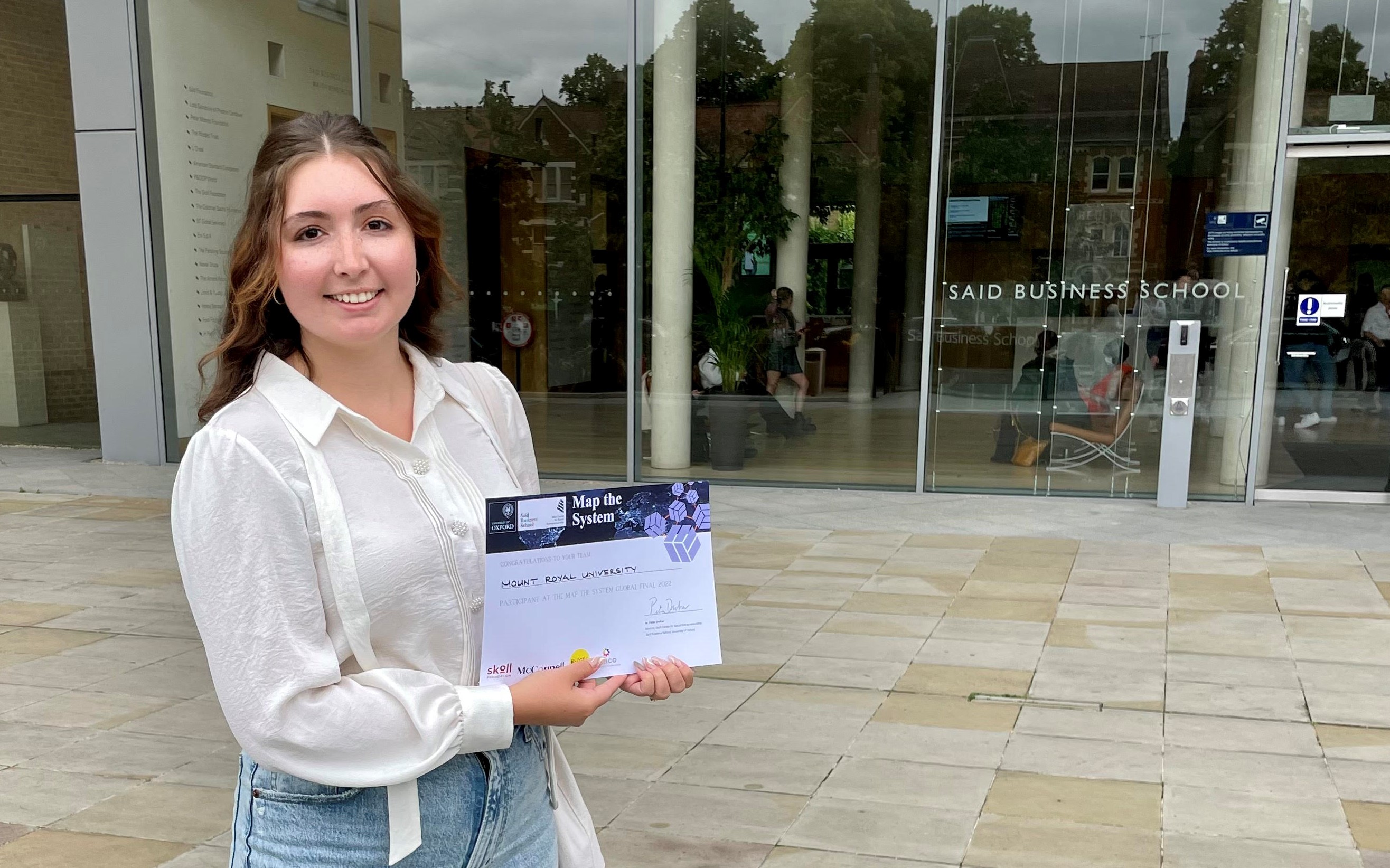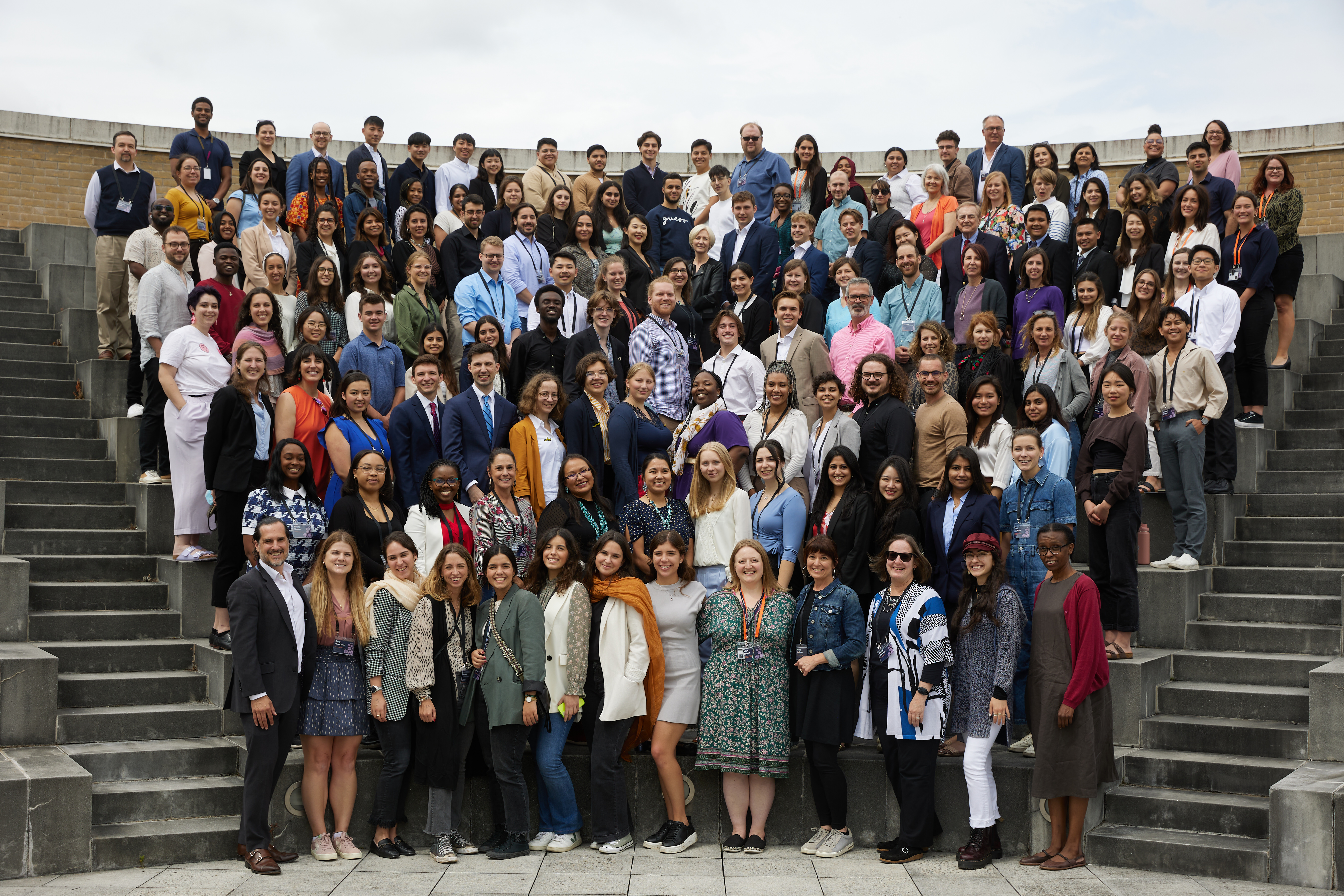Student explores underresearched area of access to healthcare
Dec 1, 2022

Kaitlyn Squires travelled to Oxford to present her research "Sex Workers in Canada Face Unequal Access to Healthcare.”
This year marked a return to travelling to Oxford for the national Map the System Final after two years of gathering online, and the journey was a welcome one. Forty-four top student teams participated in the international event on June 19th, each using an interdisciplinary systems lens to dig into unique social issues.
After exploring her selected topic, “Sex Workers in Canada Face Unequal Access to Healthcare," during the winter semester, Bachelor of Science - General Science student and Catamount Fellow Kaitlyn Squires successfully ranked as a top team in the campus and national final. As a national finalist, Kaitlyn had the opportunity to head to the international stage to present her deep systems analysis of this often overlooked issue.
“Sex workers are 3 times more likely to experience barriers to healthcare than the general population,” noted Kaitlyn in her presentation, and the challenges and stigma sex workers face in Canada has not improved despite federal legislation in 2014 aimed at legalizing some aspects of sex work.
Kaitlyn took on a detailed analysis of the literature available and connected with people involved in the issue. "Most of us are well aware that sex workers experience stigma, but I have never delved deeper to ask what it exactly looked like." This stigma meant research into the issue was difficult to find. "I turned my focus to interviewing and connecting with people involved with the issue. I enabled my research to take a human-centered approach and overcome the lack of published literature on the issue."
In her analysis, Kaitlyn explored three pillars of stigma: Paternalism, Otherization and Moralism/faith-based. From there, she articulated three traits of stigma: physical, social and moral. "The due diligence that Kaitlyn put into this part reminded me of what it means to look at root causes of any issues, in systems thinking approach." said Mizuki Oshita, the Map the System MRU Campus Coordinator. Reflecting on her experience, Kaitlyn said "it made me challenge the biases I held and I hope others will too."
Unlike a pitch competition, design sprint, or hackathon, students in the competition are evaluated based not on a ‘solution’ to a problem, but rather on the breadth and depth of understanding of the problem, as well as the nature, diversity, efficacy and relationships of current interventions (whether by governments, NGOs, social movements or the marketplace). The competition is also open to students of all levels, programs and disciplines.
Alumnus and staff member Latasha Calf Robe managed the national final with Map the System Canada and Alumnus Mizuki Oshita planned the Mount Royal event.
Learn more about Kaitlyn's research and the Map the System Mount Royal University Campus Final.

